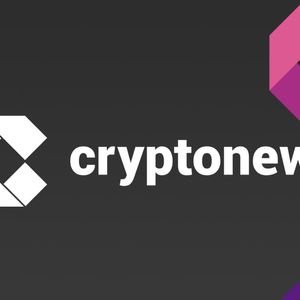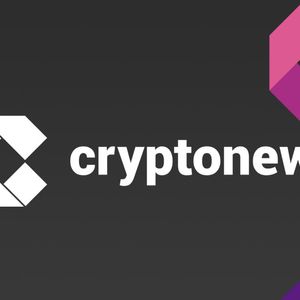Following the success of Circle Internet Group’s (NYSE: CRCL) initial public offering (IPO), a number of crypto companies have begun hinting at going public in the United States. On June 5, Circle – the issuer of the USDC stablecoin – raised $1.1 billion in its public debut . This well exceeded expectations, marking a record-setting 167% gain on CRCL’s first day of trading. CRCL stock has since skyrocketed by more than 600%. The NYSE welcomes @circle in celebration of its IPO! For over a decade, Circle has connected traditional finance and digital assets, seeking to create a secure, always-on digital economy. $CRCL @jerallaire pic.twitter.com/YnHL34puz7 — NYSE (@NYSE) June 5, 2025 On June 6, Gemini – the cryptocurrency exchange founded by Cameron and Tyler Winklevoss – also filed confidentially for a US listing . This was followed by a similar IPO filing from digital asset exchange Bullish on June 10. Other crypto exchanges including OKX and Kraken’s parent company, Payward Inc., are also reportedly streamlining operations ahead of potential IPO fillings . Why Crypto IPOs Are Gaining Traction While Circle’s successful IPO is likely influencing the current crypto IPO boom, a number of other factors are driving this trend. Jordan Jefferson, CEO and co-founder of DogeOS, told Cryptonews that the regulatory environment in the US has become significantly more favorable for crypto companies. “We’re finally getting substantial clarity from regulators, rather than just enforcement actions and uncertainty,” Jefferson said. For instance, he pointed out that Circle’s IPO announcement came alongside the Senate passing the GENIUS Act, which aims to regulate stablecoins . Jefferson noted that this is precisely the kind of regulatory clarity companies have been waiting for in the US. “When regulators start giving companies clear rules to follow instead of leaving everyone guessing, that creates the confidence needed to go through the IPO process,” he said. Looking forward to working on market structure as the House moves to send the GENIUS Act to @POTUS 's desk to sign. pic.twitter.com/uWHXebhY7G — Senator Bill Hagerty (@SenatorHagerty) June 25, 2025 Jefferson further pointed out that market maturation is equally important, noting that massive institutional interest in digital assets has become apparent. Indeed, traditional financial institutions like Citibank are actively exploring adding crypto custody, while JPMorgan Chase plans to offer crypto investments to its clients through a third-party custodian. “Institutional capital is finally entering crypto, with serious pension funds and asset managers that have been waiting for regulatory clarity to make their move,” Jefferson said. Which Crypto Companies Should Consider an IPO Although notable growth is being seen across the crypto sector, this doesn’t mean that all blockchain-focused companies should consider an IPO. Aaron Jacob, head of accounting solutions at Taxbit, told Cryptonews that the decision for a crypto company to pursue an IPO depends on their stage of growth, business model, and strategic goals. “For well-established firms with predictable revenue streams, a strong compliance posture, and ambitions to scale globally, going public can offer access to capital, enhance reputation, and improve corporate governance,” Jacob remarked. It therefore shouldn’t come as a surprise that Circle’s IPO has been successful. Circle CEO Jeremy Allaire recently stated in an interview with Reuters, “We’ve had a deep conviction from the inception of the company that we could build a new infrastructure for money, built on the internet, that could radically reshape the utility of money.” The current stablecoin market cap stands at $252 billion and is expected to grow significantly over time . Circle’s IPO demonstrates the pent up demand from public markets for digital assets. Yet Jacob warned that early-stage or highly experimental companies may find the regulatory burdens, disclosure requirements, and quarterly earnings pressure of public markets to be misaligned with their innovation-driven cultures. “Each company must weigh the long-term benefits of public listing against the operational and compliance commitments it entails,” he said. According to Jefferson, the compliance requirements of an IPO are substantial. For instance, he explained that a company going public requires a whole compliance team, internal audit functions, and significant ongoing operational costs that scale with a businesses size and complexity. To put this into perspective, US-based cryptocurrency exchange Coinbase reported $58.2 million in professional services expenses in Q1 of 2025 alone, a category that includes legal and compliance advisory. This demonstrates a 35% increase year-over-year, driven in part by expanding regulatory obligations across the US and EU. “Coinbase’s total general and administrative expenses for the quarter reached $394.3 million, highlighting how compliance operations scale with regulatory scrutiny and global licensing,” Jefferson said. He added that another major factor to consider is that traditional public markets value crypto businesses differently than crypto markets tend to. “They’re using different metrics and risk frameworks than what the crypto world is used to.” IPO Versus ICO Given this, crypto companies thinking about going public may want to consider if an initial coin offering (ICO) is better suited for their business. While ICOs were widely popular in 2017, a number of crypto companies are still implementing these models. Yet Jefferson pointed out that token sales and equity sales serve entirely different purposes and shouldn’t be considered alternatives to each other. “An IPO means selling actual equity in your company through regulated public markets with full SEC oversight, giving you access to serious institutional capital – pension funds, asset managers, sophisticated investors who understand traditional business models,” he said. Although the costs associated with an IPO are substantial, Jefferson remarked that companies are tapping into institutional money that can fund significant growth. On the other hand, an ICO token sale focuses more on building a community. A crypto company pursuing an ICO also provides utility tokens to their users. “Both raise capital, but tokens need to have real utility and purpose beyond just fundraising,” Jefferson said. IPO Boom and Bust on the Horizon? ICOs aside, it’s become apparent that the US is undergoing a crypto IPO boom. While major exchanges are considering going public, smaller players have also announced plans for an IPO. For example, Bitcoin advocate and entrepreneur Anthony Pompliano’s firm, ProCap BTC, announced Tuesday that it had acquired 3,724 BTC for $386 million. This came just days after revealing plans for the company to go public later this year . While notable, the possibility of a crypto IPO boom and bust may be looming. Petr Kozyakov, CEO and co-founder of Mercuryo, told Cryptonews that the history of finance has witnessed bubbles, both in traditional markets and in the digital asset space. “This is often fuelled by highly speculative trading,” Kozyakov said. “Some might say it is possible that we could see something similar unfold with crypto IPOs, especially if the excitement outpaces the fundamentals.” Echoing this, Jacob believes that while the IPO landscape is more regulated and selective than the prior ICO boom, the crypto sector – along with any other sector – is not immune to a boom or bust cycle in public markets. “As valuations surge and investor enthusiasm builds, some companies may rush to go public before they are operationally or financially ready, which can lead to underperformance, reputational damage, or post-IPO stock price declines,” he said. However, Jacob pointed out that unlike ICOs – which often lacked investor protections and clear oversight – the IPO process requires extensive disclosures, audited financials, and regulatory scrutiny, which helps filter out weaker companies. “That said, if a wave of crypto IPOs leads to speculative hype and overvalued listings, a correction could follow,” he remarked. “The key difference this time is the presence of institutional investors, stricter compliance standards, and more mature businesses, all of which may mitigate – but not eliminate – the risks of a boom-bust cycle.” The post Will The United States Witness A Crypto IPO Boom and Bust Soon? appeared first on Cryptonews .



















